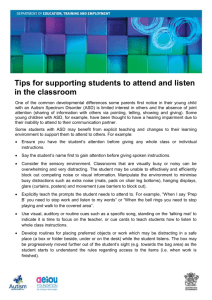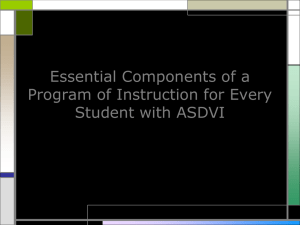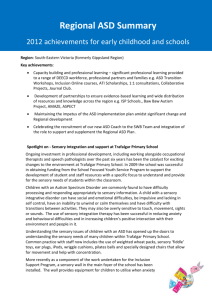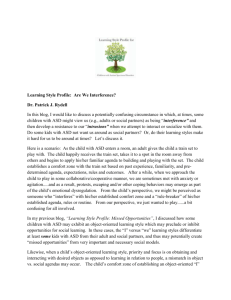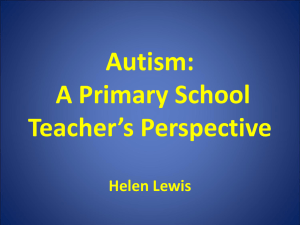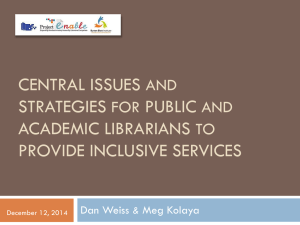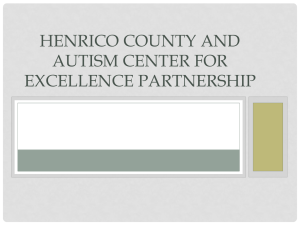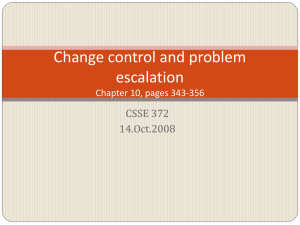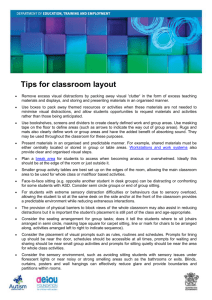Questions to ask schools
advertisement
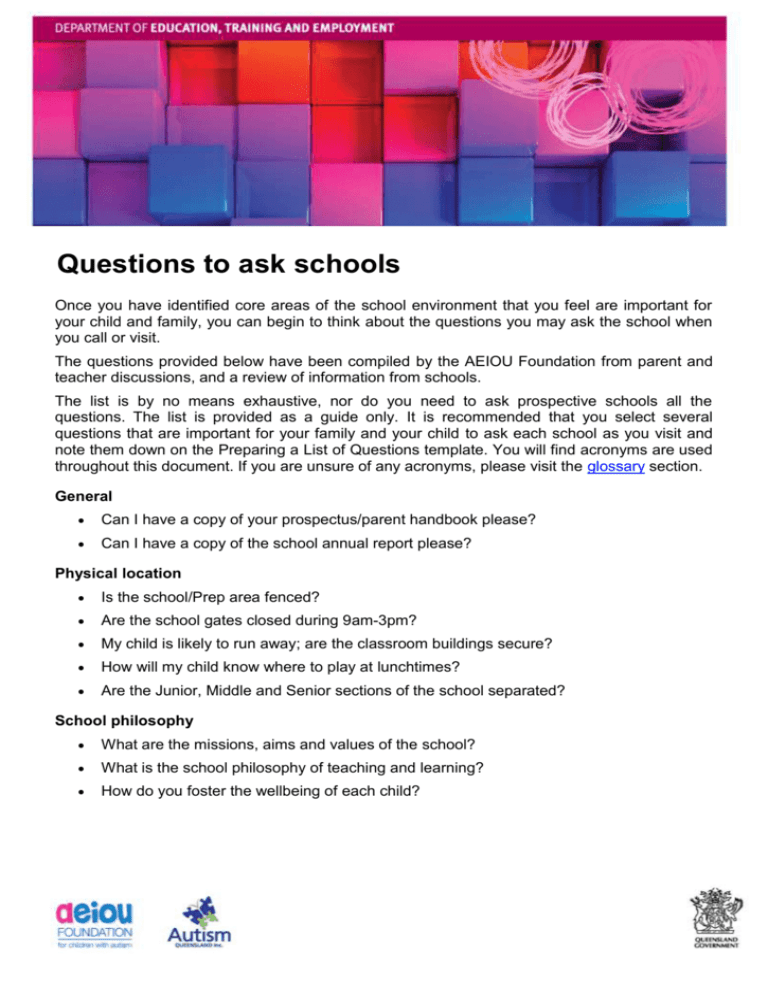
Questions to ask schools Once you have identified core areas of the school environment that you feel are important for your child and family, you can begin to think about the questions you may ask the school when you call or visit. The questions provided below have been compiled by the AEIOU Foundation from parent and teacher discussions, and a review of information from schools. The list is by no means exhaustive, nor do you need to ask prospective schools all the questions. The list is provided as a guide only. It is recommended that you select several questions that are important for your family and your child to ask each school as you visit and note them down on the Preparing a List of Questions template. You will find acronyms are used throughout this document. If you are unsure of any acronyms, please visit the glossary section. General Can I have a copy of your prospectus/parent handbook please? Can I have a copy of the school annual report please? Physical location Is the school/Prep area fenced? Are the school gates closed during 9am-3pm? My child is likely to run away; are the classroom buildings secure? How will my child know where to play at lunchtimes? Are the Junior, Middle and Senior sections of the school separated? School philosophy What are the missions, aims and values of the school? What is the school philosophy of teaching and learning? How do you foster the wellbeing of each child? Size of the school Remember that the school may not be able to provide you with exact enrolment figures for total population, the anticipated size, or who your child’s classroom teacher will be. What are the expected class sizes for my child’s intake year? What are the average class sizes? How many teacher aides do you currently have on staff for Prep and Year 1? On average, how many hours per week do teacher aides spend in the classroom? How many teachers are in your special education program (SEP)? Support for children with disability Can you explain to me how your SEP works at this school? Do children tend to spend the majority of their day in the mainstream classroom or the SEP? Do you withdraw children from class? If so, when and why? How does the school ensure access to the curriculum for students with disability? Can you tell me about the individual planning process at your school? (e.g. How often do they occur? Can I bring additional people with me?) How will my child be assessed within the learning environment? Can you tell me about the reporting process at your school? What support and professional development will the people working with my child receive (e.g. advisory visiting teacher (AVT))? How is funding typically allocated at this specific school? What type of support is available for my child at the school (e.g. teacher and teacher aide time, technology, resources)? How much access to specialists and allied health professionals will my child have? Support for children with Autism Spectrum Disorder (ASD) Is there a specialist teacher on site? Does the classroom teacher have knowledge of ASD? If not, how will they be supported? Have there been many children with ASD attend this school? My child uses augmentative and alternative communication (ACC) (insert method e.g. Makaton) to communicate their needs and wants. How will this be accommodated across the day? Are you flexible in your approaches to teaching and learning? Can you tell me more and give me some examples? My child uses visuals across the day to provide structure and routine. How will this be accommodated into the daily program? Is the school comfortable implementing specific strategies into the classroom routine to help my child e.g. use of visuals, schedules, jigs? My child has additional sensory needs (e.g. needs a sensory break so may need to go for a swing or a run, may need a ‘move’n‘sit cushion’ or a chewy tube). How can this be accommodated across the day? My child experiences difficulties transitioning so I think they will have difficulty going to classes like Physical Education and Music. How can we work to support my child during these transitions? What type of visuals are displayed in the classroom? If the classroom is too visually stimulating, are staff happy to adjust the classroom layout? Does the classroom layout and routine change regularly? If it does how do you prepare the children for the change? How does the teacher communicate with parents? Would you be willing to set up a communication link between home and school (e.g. communication book, email, texting)? Could I arrange a regular meeting with the classroom teacher, for example once every three weeks to catch up on my child’s progress? My child has a private occupational therapist / speech-language pathologist / psychologist / consultant who works with them on a regular basis. Can this person attend the classroom to observe and provide recommendations for the classroom teacher? If a relief teacher is required: o How do you prepare the relief teacher? o How do you prepare the students? o Can we create a profile of my child for the relief teacher so that they are aware of strategies that will assist my child across the day? Social interaction How does the school foster positive social skills (e.g. buddy system)? What is the lunchtime routine at school? My child may need additional support during lunchtime and playtime. Are you able to provide this? How will other staff know about my child’s additional needs during outside play? What is the bullying policy at the school? Behaviour management At times my child may exhibit behaviour that is challenging (e.g. biting, scratching, hitting, running away). This is often because they are trying to communicate with others and do not always have the words to tell people how they feel. What is contained within the school’s Responsible Behaviour Plan for Students or policy regarding challenging behaviours? If the policy is not suitable for my child, how flexible are you in adapting it for my child’s individual needs? Do you provide social skills training or other wellbeing and development training? Self-care My child may require assistance to use the toilet, wash hands, get changed, blow their nose and apply sunscreen. How will staff be able to assist with self-care tasks? What distance are the toilets from the classroom? Transition My child currently attends an early childhood education and care setting. Are you comfortable working with this organisation to develop a transition plan to support my child’s transition to school? Uniform My child may not feel comfortable in the uniform due to sensory processing differences, is the school flexible with modifying the uniform slightly? My child may not wear their hat outside. What support is available if the school has a ‘no hat no play policy’? Building an understanding of ASD in the school community Are parents generally supportive of children with additional needs in the classroom? Engage in a discussion with the school regarding how you feel about disclosure of your child’s diagnosis with his/her peers and other parents in the class. You may want to talk directly to other parents about your child. If you don’t, is the school happy to educate parents? Contributing to the school community Do you have an active Parent and Citizens Association? What is the membership process? Do you have parent helpers? What is the process? How can parents and families contribute to the school? How can I contribute to the school community?
